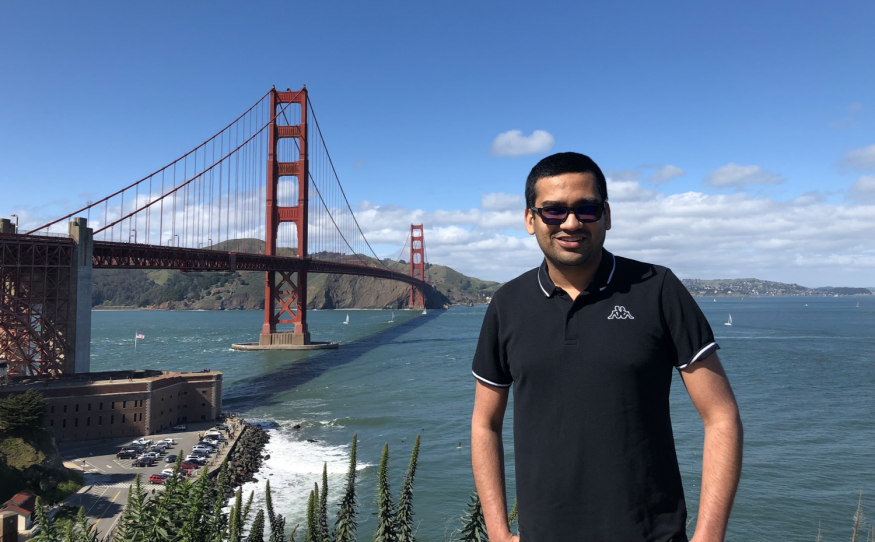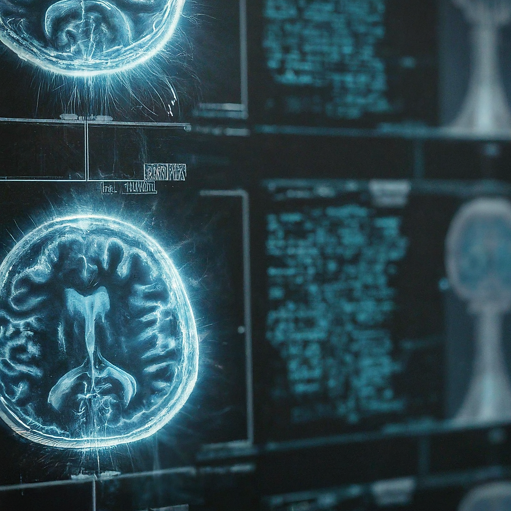
Healthcare, a critical sector, increasingly relies on advanced technology to improve patient outcomes and streamline services. Tejas Padliya stands out as a visionary figure in the field of technology, particularly in healthcare, where artificial intelligence (AI) applications are prevalent. His journey from a curious child surrounded by medical discussions in a physician's household to commanding the technological helm at Roche in San Francisco, California, as a Principal Software Engineer represents a genre of a story marked by relentless curiosity, steadfast determination, and profound innovation. Holding a Master of Science degree in Computer Science from the prestigious Rochester Institute of Technology and harboring a specialty in Artificial Intelligence, Tejas' academic and professional trajectory has been nothing short of remarkable.
Throughout his career, he has sculpted a narrative of success through innovation, solving complex technical challenges, and pushing the boundaries of what is possible with AI in healthcare. His work not only demonstrates a deep understanding of the technology but also a compassionate approach to its application, aiming to improve patient outcomes, optimize healthcare infrastructure, and enhance the quality of life, especially for older adults.
The drive to leverage technology for societal good extends beyond his professional duties, as Tejas also engages in tackling issues like poverty, hunger, and homelessness within his local community. Let's dive right in.
Inspiration Behind AI Healthcare Innovations
Tejas' journey into AI healthcare innovation began at home, where he was exposed to the world of medicine through his father, a family physician. This unique upbringing gave him a front-row seat to the challenges and intricacies of patient care. The firsthand insight into healthcare "sparked my interest in leveraging technology to improve healthcare delivery," Tejas recalls. These early experiences shaped his perspective, driving him to find ways technology could streamline patient care and make it more efficient.
His academic background in computer science, particularly during his master's studies, laid the technical foundation for his journey into AI. He credits this education and his subsequent experience as a software engineer with providing him the expertise to navigate and leverage AI technologies effectively. Tejas has always been driven by a passion for addressing societal challenges, and healthcare offers a unique opportunity to improve patient outcomes, optimize resource allocation, and improve quality of lives.
Leveraging Experience to Drive Innovation
His journey into AI-driven healthcare innovation is fueled by a unique blend of experiences and a profound commitment to social impact. His extensive travels to various countries have given him a broader perspective on healthcare systems, allowing him to understand the diverse needs of different populations. This exposure has equipped Tejas with the insights necessary to design solutions that are not only technologically advanced but also culturally sensitive and practical. His entrepreneurial mindset drives him to innovate, constantly seeking ways to improve healthcare accessibility and outcomes through AI.
His dedication to leveraging technology for social good is rooted in his active involvement in community initiatives that address pressing issues like hunger and homelessness. Tejas explains that his commitment to making a positive impact on people's lives motivates him to develop AI-powered healthcare applications that are ethical, inclusive, and universally accessible. This focus on social responsibility ensures that his innovations align with industry standards and regulatory requirements while making a tangible difference in healthcare delivery and patient care.
Addressing Critical Healthcare Challenges with AI

One project by Tejas stands out for its innovative approach and societal impact: a predictive analytics system for early detection of age-related diseases. "The project focused on leveraging machine learning algorithms to analyze diverse datasets, to identify patterns and biomarkers associated with age-related diseases," he explains. Such an initiative underscores the potential of AI to transform healthcare delivery for older adults, making it possible to anticipate health issues before they manifest severely.
The predictive analytics system Tejas developed used advanced modeling techniques to track subtle changes in health indicators over time, enabling the early identification of individuals at risk. This approach facilitated personalized treatment plans and proactive lifestyle modifications to curb the progression of these age-related conditions. The project also emphasized user-friendly interfaces and remote monitoring, providing older adults and their caregivers with actionable insights and real-time feedback. This combination of early detection and accessible technology significantly enhanced patient engagement, adherence to treatment regimens, and timely communication, ultimately contributing to improved health outcomes for older adults.
Ensuring AI Accuracy and Reliability
To ensure the accuracy and reliability of data used by AI systems in health monitoring, Tejas employs a comprehensive approach. It begins with a rigorous quality assessment and data cleaning to tackle errors and inconsistencies. This involves robust preprocessing techniques that standardize data formats while eliminating noise and irrelevant information. Advanced feature engineering plays a critical role in extracting clinically relevant features from raw data under the guidance of domain expertise. This meticulous process ensures that the AI models are built on a solid foundation.
In addition, Tejas leverages data augmentation methods to enhance the diversity and representativeness of training data, which is particularly valuable when working with limited labeled data. Rigorous cross-validation and the use of evaluation metrics are key strategies to assess model performance and generalization, providing confidence that the AI systems will work effectively in various scenarios.
Tejas emphasizes ensuring transparency in model algorithms, helping to identify biases and maintain trust in AI-driven healthcare solutions. The final layer of quality control comes from continuous monitoring and feedback loops, which allow for ongoing assessment of model performance and recalibration as needed. Together, these strategies create a robust system that enhances the accuracy, reliability, and trustworthiness of AI health monitoring applications, leading to better healthcare.
The Visionary Outlook for AI in Healthcare
Tejas forecasts transformative advancements in healthcare driven by AI, focusing on personalized medicine, remote monitoring, health data security, and AI-assisted diagnosis. "In the next five years, AI-driven algorithms will make precision medicine (also individualized medicine) more affordable and accessible to everyone," he projects. Tejas envisions a future where wearable devices and the Internet of Things (IoT) devices are integrated into remote healthcare delivery, creating a more connected, customized, and accessible healthcare system.
In addressing the ethical and privacy concerns associated with AI in monitoring patient health data, a comprehensive approach is essential. The establishment of transparent ethical frameworks emphasizes the importance of patient welfare, autonomy, and fairness. Integrating privacy-enhancing technologies is crucial for maintaining confidentiality. Moreover, obtaining informed consent from patients concerning the use of their data promotes transparency while respecting their autonomy and rights. Strong data governance and accountability mechanisms are vital for the responsible handling of patient data throughout its lifecycle. Continuous monitoring and evaluation of ethical implications are necessary to address emerging challenges effectively.
According to Tejas, "Collaboration among professionals in healthcare, data science, ethics, and regulatory sectors is critical for a thorough evaluation of ethical considerations." Proactive strategies and cross-disciplinary partnerships are fundamental in ensuring that AI applications for monitoring patient health adhere to the highest ethical standards, protect privacy, and focus on patient-centered care. This approach not only fosters trust but also supports further advancements in medical technology.
Likewise, Tejas acknowledges that increased focus on ethical and regulatory frameworks to address concerns related to data privacy, bias, transparency, and accountability is crucial. Through cross-disciplinary partnerships and continuous evaluation of ethical implications, he seeks to ensure the ethical deployment of AI technologies while fostering trust and confidence among patients and healthcare providers.
Collaborative Efforts in AI Health Monitoring Solutions
The development of AI solutions for health monitoring, according to Tejas, is a collaborative endeavor that requires the confluence of diverse expertise. "Collaboration between engineers, healthcare professionals, and patients is indispensable," he asserts, underlining the importance of integrating technical innovation with clinical insights and patient needs. This collaborative framework ensures the creation of AI solutions that are not only technically sound but also clinically relevant and patient-centered.
Tejas' emphasis on collaboration highlights a holistic approach to AI solution development, where technology, medical knowledge, and patient insights come together to create impactful healthcare applications. This methodology not only reinforces the efficacy and relevance of AI technologies in health monitoring but also fosters innovation tailored to real-world healthcare needs and challenges. Through such collaborations, Tejas contributes to a future where technology and healthcare are seamlessly integrated, enhancing patient care and outcomes.
Bridging the Gap
Tejas envisions machine learning (ML) as a key player in making healthcare more accessible, particularly for underprivileged communities. By leveraging telemedicine, remote monitoring, AI diagnostic algorithms, and healthcare chatbots, Tejas sees a future where technology bridges the gap in access to quality healthcare. "Emerging technologies in AI offer transformative solutions," he notes, pointing to the potential of predictive analytics, precision medicine, and mobile health apps in reaching underserved populations.
This vision of utilizing AI to address healthcare disparities reflects a broader commitment to using technology as a force for good, ensuring that the benefits of advanced healthcare solutions extend to all segments of society. Tejas' work embodies a model where innovation not only advances healthcare technology but also enhances its accessibility and equity, showcasing the profound impact AI can have in making healthcare universally accessible and transforming lives.
In the narrative of Tejas' professional journey and vision, a compelling portrait of a leader emerges at the intersection of AI and healthcare. His endeavors illustrate the transformative power of technology when applied with a blend of expertise, compassion, and a deep sense of social responsibility. As AI continues to evolve and redefine the boundaries of what is possible in healthcare, Tejas remains at the forefront, pioneering solutions that enhance patient care, promote accessibility and pave the way for a future where technology and healthcare go hand in hand in uplifting lives and improving well-being for all.
© 2025 ScienceTimes.com All rights reserved. Do not reproduce without permission. The window to the world of Science Times.











